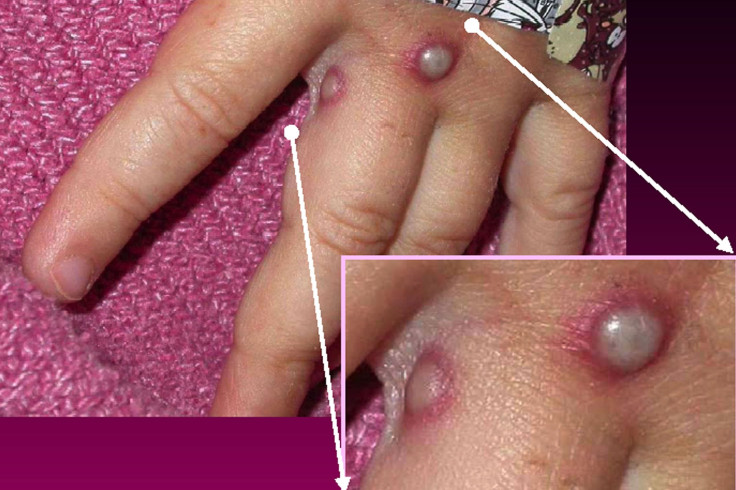Monkeypox Symptoms: Second Case Of Rare, Potentially Deadly Infection Diagnosed In England

A second case of monkeypox was diagnosed in England merely days after health officials discovered the first case of the potentially life-threatening infection in Cornwall.
Public Health England (PHE) said both the patients recently visited Nigeria, where the disease was rampant, which could be where they contracted the infection.
“We know that in September 2017 Nigeria experienced a large sustained outbreak of monkeypox and since then sporadic cases have continued to be reported,” said Dr. Nick Phin, deputy director of PHE’s National Infection Service, Independent reported. “It is likely that monkeypox continues to circulate in Nigeria and could therefore affect travelers who are returning from this part of the world, however, it is very unusual to see two cases in such a relatively short space of time.”
The second case was diagnosed when the latest patient got admitted to Blackpool Victoria Hospital, England. The patient was since transferred to a specialist infectious disease unit at the Royal Liverpool University Hospital.
“We are treating a patient who has tested positive for monkeypox,” Dr. Mike Beadsworth, clinical director of the Tropical and Infectious Diseases Unit at the Royal Liverpool University Hospital, said. “The patient is being cared for on our specialist infectious and tropical diseases unit, by highly trained staff who are experienced in dealing with a variety of infectious diseases.”
The first case involved a Nigerian navy officer staying at a naval base in Cornwall, who was currently being treated at the Royal Free Hospital in London.
Monkeypox virus, symptoms, treatment
Monkeypox is a rare disease observed mainly in central and western African countries, caused by the Monkey virus. It is named “monkeypox” because the strain was first noticed in 1958 when two outbreaks of a pox-like disease occurred in colonies of monkeys kept for research.
According to the Centers of Disease Control and Prevention, “Monkeypox virus belongs to the Orthopoxvirus genus in the family Poxviridae. The Orthopoxvirus genus also includes variola virus (the cause of smallpox), vaccinia virus (used in the smallpox vaccine), and cowpox virus.”
Some of the initial symptoms include fever, headache, muscle aches, backache, swollen lymph nodes, chills and exhaustion. Typically, one to three days after the patient develops fever, a rash shows up, often on the face, and then spreads to other parts of the body. The rashes eventually become scabs that fall off, and the disease usually lasts between two and four weeks.
Although some of the initial symptoms of monkeypox are just like smallpox, the disease is relatively harmless and rarely takes on a severe form. However, advanced stages of the disease can be fatal for humans. In Africa, monkeypox was shown to cause death in as many as 1 in 10 persons who contract the disease.
Except administering smallpox vaccine, antivirals, and vaccinia immune globulin, there are no proven, safe treatment for monkeypox virus infection.
© Copyright IBTimes 2025. All rights reserved.






















